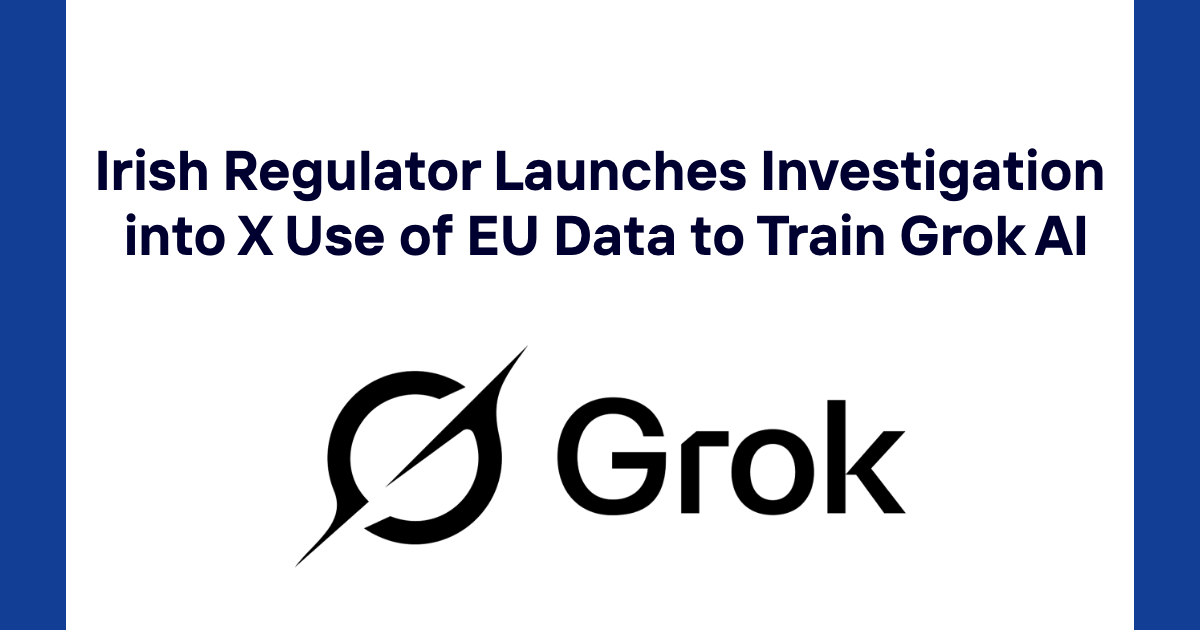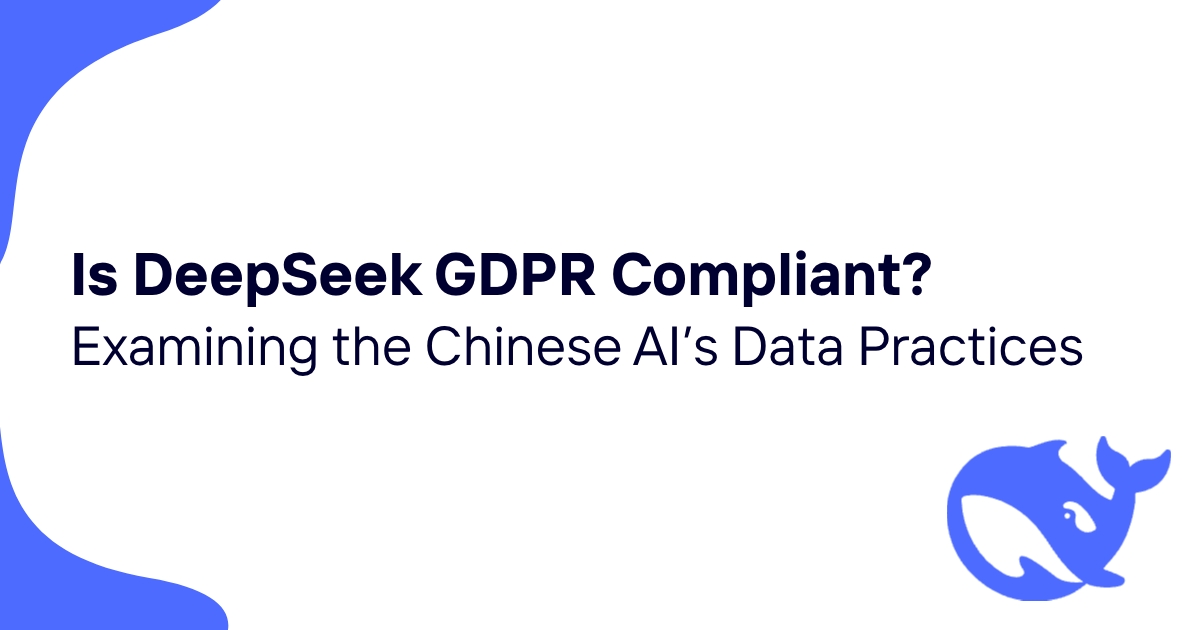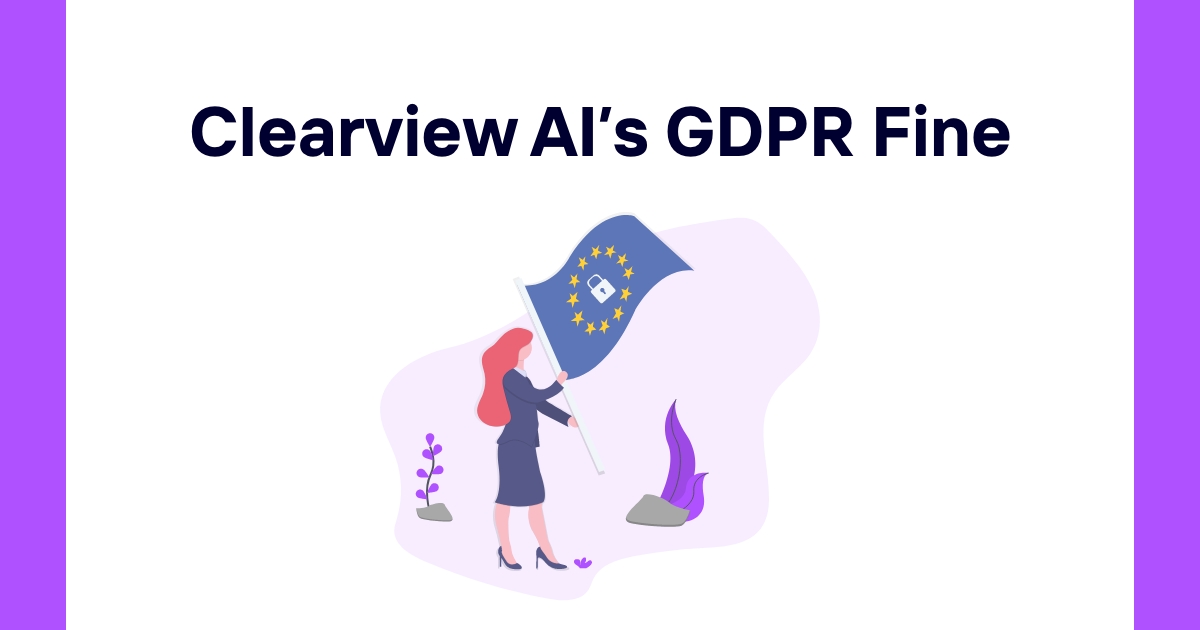Introduction
In a significant development for data privacy in Europe, Ireland's Data Protection Commission (DPC) has launched an investigation into X (formerly Twitter) regarding how the social media platform used EU citizens' personal data to train its artificial intelligence model, Grok. This probe marks another chapter in the ongoing tension between tech innovation and data protection rights, particularly as AI development accelerates globally.
The investigation centers on whether X properly handled personal data from public posts on its platform when developing Grok, the AI chatbot and assistant created by xAI, Elon Musk's artificial intelligence company. For anyone tracking AI regulation or data privacy matters, this case offers important insights into how European regulators are approaching AI development using personal data.
Table of Contents
- Understanding the Investigation
- Background on Grok and xAI
- The Legal Framework: GDPR Requirements
- Previous Conflicts Between X and Irish Regulators
- Potential GDPR Violations
- Broader Implications for AI Development
- EU-US Tensions Over Tech Regulation
- What This Means for Tech Companies
- Possible Outcomes of the Investigation
- Best Practices for GDPR Compliance in AI Development
- Conclusion
Understanding the Investigation
The Irish Data Protection Commission officially announced its investigation into X on Friday, specifically examining how the platform processed personal data contained in publicly accessible posts to train the Grok AI system. This isn't merely a technical inquiry - it strikes at the heart of consent and transparency issues that have become increasingly contentious in the AI development space.
Ireland's DPC holds particular significance in EU tech regulation because many major tech companies, including X, have their European headquarters in Ireland. This makes the Irish regulator the lead supervisory authority for these companies under the GDPR's one-stop-shop mechanism.
The investigation will focus on whether X's data practices complied with core GDPR principles, including:
- Whether user data was processed lawfully
- If transparency requirements were met
- Whether the company had proper legal basis for using the data
- If data minimization principles were followed
What stands out about this case is that it targets publicly available data - something many AI companies have historically assumed they could use freely for training purposes. This investigation challenges that assumption directly.
Background on Grok and xAI
Grok is an AI assistant developed by xAI, the artificial intelligence startup founded by Elon Musk in 2023. Positioned as a competitor to systems like OpenAI's ChatGPT and Anthropic's Claude, Grok has been integrated into the X platform as a premium feature for subscribers.
Musk launched xAI after expressing concerns about what he perceived as excessive political correctness and content restrictions in other AI systems. Grok is marketed as having "a bit of wit" and being willing to answer "spicy questions" that other AI systems might refuse.
The system requires vast amounts of training data to function - and this is where the controversy emerges. Like most large language models, Grok needs to analyze enormous text datasets to learn language patterns, factual information, and response capabilities. X's platform, with its billions of public posts, represents a potential treasure trove of training material.
But did X have the right to use European users' posts this way? That's the central question the Irish DPC is now investigating.
The Legal Framework: GDPR Requirements
To understand why this investigation matters, we need to examine the relevant GDPR requirements that might apply to AI training data.
Under the GDPR, organizations need a lawful basis for processing personal data. The six lawful bases include:
- Consent
- Contract
- Legal obligation
- Vital interests
- Public interest
- Legitimate interests
For AI training, companies often rely on either consent or legitimate interests. If X is claiming legitimate interests, they would need to demonstrate that:
- They have a legitimate interest in training AI models
- Processing users' data is necessary for that purpose
- Their interests aren't overridden by users' data protection rights
The GDPR also requires transparency. Users must be clearly informed about how their data will be used, which brings up questions about whether X adequately disclosed to European users that their posts might be used to train AI systems.
Another critical aspect is purpose limitation - data collected for one purpose (facilitating social media interactions) shouldn't be repurposed (training AI) without proper notification and potentially new consent.
Previous Conflicts Between X and Irish Regulators
This isn't the first clash between X and Irish data protection authorities over Grok. In late 2023 and early 2024, X faced scrutiny from the DPC regarding its AI practices, which culminated in a legal battle in the Irish courts.
After that confrontation, X agreed to suspend using EU citizens' data for AI training purposes. This makes the current investigation particularly significant - the DPC appears to be examining whether X has fully complied with that agreement.
The relationship between X and European regulators has been strained since Musk's acquisition of the platform in 2022. Musk's approach to content moderation and data practices has frequently put the company at odds with European regulatory frameworks, including the GDPR and the Digital Services Act (DSA).
These tensions reflect broader philosophical differences between Musk's self-described "free speech absolutist" stance and Europe's more regulated approach to digital rights and protections.
Potential GDPR Violations
If the investigation finds X violated GDPR rules, what specific infractions might they be charged with? Here are some possibilities:
Lack of proper legal basis: If X can't demonstrate valid consent or legitimate interest for using posts to train Grok, that's a fundamental GDPR violation.
Insufficient transparency: The GDPR requires clear, plain language explanations of how data will be used. If X didn't properly inform users their posts might train AI systems, that's problematic.
Purpose limitation issues: Using data collected for running a social media platform to instead train AI models could violate purpose limitation principles if not properly disclosed.
Data subject rights infringements: Users have rights to access, correct, and delete their data under GDPR. Did X provide mechanisms for users to exclude their data from AI training?
Data minimization concerns: Did X use more data than necessary to train Grok? GDPR requires companies collect and process only what's needed for the stated purpose.
The penalties for GDPR violations can be severe - up to 4% of global annual revenue or €20 million, whichever is higher. For a company of X's size, this could represent a substantial financial impact.
Broader Implications for AI Development
This investigation doesn't exist in isolation - it's part of a growing debate about the ethics and legality of how AI systems are trained.
Traditional AI development has often relied on scraping publicly available data without explicit permission from creators or subjects. This approach is increasingly being challenged on both legal and ethical grounds.
Several key questions arise:
- Is public data truly "fair game" for AI training?
- What constitutes adequate disclosure that user-generated content may be used to build AI systems?
- How can users meaningfully consent to or opt out of having their data used for AI training?
- What rights do data subjects have regarding AI models trained on their personal information?
These questions aren't just academic - they have practical implications for how AI companies operate, especially those with global user bases that include European citizens.
The outcome of this investigation could signal how European regulators plan to apply existing data protection frameworks to the rapidly evolving AI landscape, potentially establishing precedents that would affect the entire industry.
EU-US Tensions Over Tech Regulation
The investigation into X comes at a time of increased friction between the European Union and the United States regarding tech regulation. With Elon Musk serving as a key advisor to President Trump on technology issues, this case could further complicate the transatlantic relationship on digital policy.
Europe has taken a more proactive approach to regulating technology through frameworks like the GDPR, the Digital Services Act, the Digital Markets Act, and the newly enacted AI Act. These regulations impose significant compliance requirements on tech companies, many of which are headquartered in the US.
The US has historically favored a more hands-off approach, allowing greater self-regulation by the tech industry. This philosophical difference has created tensions, with some US officials and tech leaders characterizing European regulations as overly restrictive and potentially harmful to innovation.
This investigation into X, a high-profile company owned by a prominent figure close to the US administration, could become a flashpoint in these ongoing discussions about the proper balance between regulation and innovation.
What This Means for Tech Companies
For tech companies developing AI systems, this investigation sends several important signals:
First, it underscores that European regulators are serious about applying GDPR principles to AI development, even when that development involves publicly available data.
Second, it suggests companies need robust processes for:
- Transparently informing users about AI training uses
- Obtaining appropriate consent or establishing legitimate interest
- Providing opt-out mechanisms
- Documenting compliance decisions
Third, it highlights the importance of privacy by design in AI development. Building privacy considerations into the earliest stages of AI development may help avoid regulatory issues later.
Finally, it demonstrates the need for global companies to reconcile different regional approaches to privacy and data protection. What's acceptable in one jurisdiction may violate regulations in another, requiring careful navigation of these differences.
Possible Outcomes of the Investigation
What might result from the DPC's investigation? Several outcomes are possible:
Finding of no violation: The DPC could conclude that X's practices comply with GDPR requirements, effectively clearing the company.
Minor violations with recommendations: The investigation might find technical or procedural violations that require correction but don't warrant significant penalties.
Major violations with fines: If serious breaches are found, substantial financial penalties could be imposed alongside requirements to change practices.
Prohibition on certain data uses: The DPC could potentially prohibit X from using European users' data for AI training altogether.
Precedent-setting guidance: Beyond the specific case, the DPC might issue broader guidance on how GDPR applies to AI training data.
The timeline for this investigation remains unclear. GDPR investigations can be lengthy, often taking months or even years to reach final decisions, especially in complex cases involving novel technologies.
Best Practices for GDPR Compliance in AI Development
Companies developing AI systems that might use European personal data should consider these best practices to avoid similar regulatory scrutiny:
Conduct data protection impact assessments: Before using personal data for AI training, assess the risks and document how you'll mitigate them.
Be transparent: Clearly explain to users how their data might be used in AI development. Buried terms of service aren't sufficient.
Establish proper legal basis: Determine whether consent or legitimate interest is appropriate for your use case, and ensure you can document your decision.
Implement data minimization: Use only the data necessary for training. Consider anonymization or pseudonymization techniques where possible.
Respect opt-outs: Provide mechanisms for users to exclude their data from AI training if they wish.
Consider geographic data segregation: Some companies maintain separate data environments for EU users to ensure compliance with regional regulations.
Maintain documentation: Keep detailed records of data processing activities, legal bases, and compliance measures.
Regular compliance reviews: As AI systems evolve, periodically review compliance measures to ensure they remain adequate.
Implementing these practices requires coordination across technical, legal, and product teams - privacy compliance in AI development isn't just a legal issue but a cross-functional challenge.
Conclusion
The Irish DPC's investigation into X's use of European data to train Grok represents a significant moment in the evolving regulatory landscape for AI. It tests the boundaries between innovation and privacy protection, and could establish important precedents for how data protection laws apply to AI development.
For tech companies, especially those developing AI systems, this case serves as a reminder that data protection compliance isn't optional - it's an essential aspect of responsible AI development. As AI capabilities grow more sophisticated and integrated into everyday services, the scrutiny around how these systems are trained will only increase.
Organizations looking to develop AI while maintaining compliance with data protection regulations face complex challenges. Using comprehensive GDPR compliance software like ComplyDog can help companies navigate these challenges more effectively. Such tools provide structured frameworks for mapping data flows, documenting legal bases for processing, managing consent, and implementing appropriate technical and organizational measures - all critical aspects of compliant AI development.
As this investigation unfolds, it will be worth watching not just for its impact on X, but for the broader signals it sends about how European regulators intend to balance technological innovation with their commitment to protecting individuals' fundamental right to data protection.

















